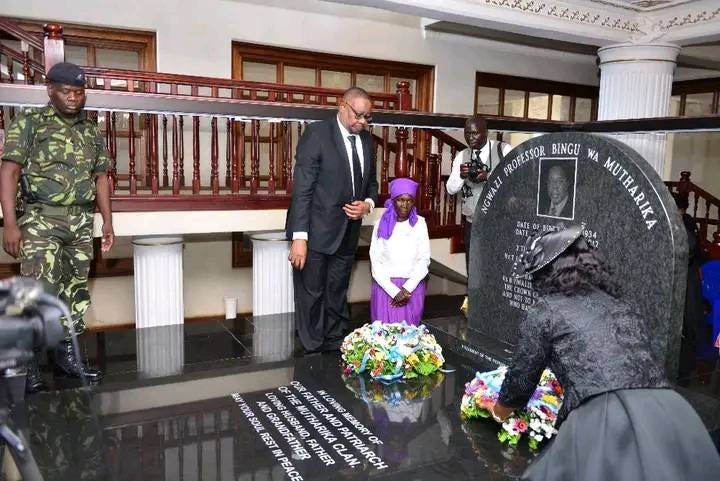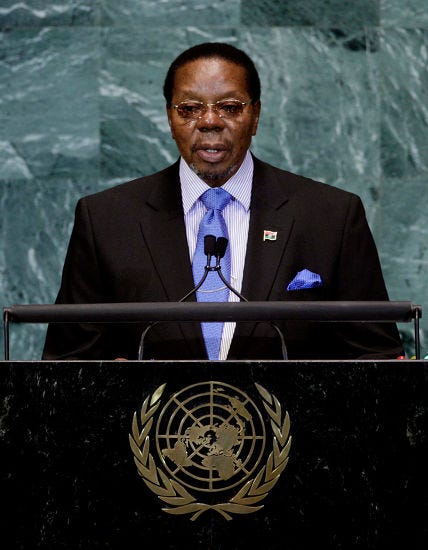Bingu Wa Mutharika: A Controversial Legacy in Malawi's History
A memorial service was held at Mpumulo wa Bata in Ndata, Thyolo to remember Bingu wa Mutharika, whose official date of death was recognized by the government at this time, writes Justin Mthawanji.
Malawi-On Wednesday, a memorial service was held at Mpumulo wa Bata in Ndata, Thyolo, to remember Bingu wa Mutharika, whose official date of death was recognized by the government at this time, writes Justin Mthawanji.
Reflecting on his legacy, it is important to acknowledge that Bingu wa Mutharika was a man of many faces, a controversial figure who made significant contributions to Malawi's development during his time as president.
While his legacy remains a subject of debate, there is no denying the impact he had on the country.
Bingu wa Mutharika was known for championing Malawi's sovereignty and standing up to Western powers when he believed they were acting against his country's interests.
His bold move to expel the British ambassador after he wrote a diplomatic cable calling him autocratic demonstrated his commitment to sovereignty. He also refused to bow down to donor pressure and introduced the zero-deficit budget, aimed at making Malawi self-sufficient by reducing reliance on foreign aid.
His refusal to devalue the Kwacha and his decision to refuse to meet with the IMF delegation, which he deemed too junior for him, were both controversial but reflected his determination to chart Malawi's own course and protect its economic sovereignty.
Bingu wa Mutharika's stance against homosexuality, which drew criticism from Western countries as a violation of human rights, was another example of his commitment to cultural values and national sovereignty.
He stood firm on this issue, believing that Malawi's cultural values should be upheld and respected, even if they did not align with Western ideals.
Under Bingu wa Mutharika's leadership, Malawi also achieved significant economic growth through the fertilizer and seed subsidy program, which aimed to improve food security in the country.
This program led to a 7% economic growth rate between 2005 and 2010 and has been emulated by other African nations. Additionally, he prioritized infrastructure development, overseeing the construction of the Malawi University of Science and Technology, the new parliament building, a stadium in Lilongwe, a new 5-star hotel, and several roads.
These projects modernized Malawi's infrastructure and attracted foreign investment.
Furthermore, Bingu wa Mutharika made significant reforms to Malawi's education system, refurbishing teacher training colleges throughout the country and introducing the Initial Primary Teacher Education program under the Outcome-based Education program, which trained primary school teachers for 2 years. This program continues to this day and has contributed to improving the quality of education in Malawi.
However, Bingu wa Mutharika's tenure was not without controversy. His quota system of selecting students was seen by some as divisive and unfair, and his refusal to devalue the Kwacha led to an economic crisis with inflation rates soaring over 20%.
His perceived arrogance and refusal to engage with the donor community also strained relations with Western powers, which had a negative impact on Malawi's economy.
In conclusion, Bingu wa Mutharika was a complex and controversial figure who made significant contributions to Malawi's development.
His legacy is a subject of debate, but there is no denying the impact he had on the country during his presidency.
Malawi will remember Bingu wa Mutharika as a man who had two dates of death, April 5 and 6, 2012, reflecting his controversial nature and the mixed opinions about his legacy.




